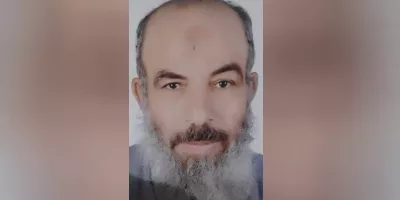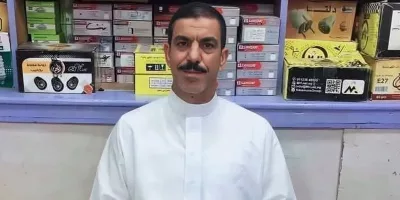In its third quarterly report for the year 2022, the Committee for Justice documented 1,453 human rights violations in Egyptian prisons and detention centers.
The report, which covers the period from July to September 2022, sheds light on the Egyptian government’s repressive approach during the latest economic crisis. The security approach was evident in the government’s reaction to the strike by workers of the Beshai Steel Company, the crisis of Warraq Island and the forcible displacement of its residents in order to sell it to an Emirati company.
In conjunction with the announced efforts of the Presidential Pardon Committee to correct the mistakes of the past, the security and judicial authorities continued to abuse dissidents, human rights defenders and opinion leaders. For example, the detention of human rights defender Sherif El-Rouby has been renewed less than four months after his release. Three female journalists from the news website Mada Masr were arrested and interrogated. Apart from the opponents, a young man named Karim Safwat has been detained for taking a photo and a short video clip in a garden at the Presidential Palace in the New Administrative Capital, where he was working.
With regard to judicial developments, CFJ documented the death sentences issued by the military court in the Tora Courts Complex against five defendants in Case No. 536/2020 North Military felonies, known in the media as the “Pyramid Flat Cell”. Circuit 25 of the Criminal Court in South Cairo upheld a request by the Supreme State Security Prosecution to include 42 defendants, including 19 students, on the lists of terrorists for a period of five years, in Case 483/2021, known as the “Revolutionary Guards Organization.”
In a new chapter of tightening military control over the judicial system and the highest judicial institution, which is the Supreme Constitutional Court, President Abdel Fattah El-Sisi decided to appoint Major General Salah Al-Ruwaini, the former head of the Military Justice Authority, as Vice-President of the Supreme Constitutional Court.
During the reporting period, CFJ documented 1,453 violations, the highest percentage of which were cases of arbitrary deprivation of liberty (1,351), followed by enforced disappearances (48), then poor conditions of detention (26), then deaths inside places of detention and torture, with 19 and 9 violations, respectively.
With regard to the time period, the largest percentage of violations (516) occurred in the month of August, accounting for about 35 percent of the total documented violations. As for the governorates, the report covered 10 Egyptian governorates, with the highest number of violations being recorded in Cairo, where approximately 64 percent of the total documented violations occurred, with 939 violations.
With regard to the types of detention facilities in which CFJ was able to document the occurrence of violations, police stations and centers topped the list of the aforementioned facilities, where 306 violations were documented.
Concerning the victims, political activists were the target of 11 documented violations, and the same for workers in the media industry and those from engineering professions, followed by human rights defenders with seven documented violations.
Young victims (18-34 years old) represented the highest age group among the victims, with 33 documented violations, and the share of males was the highest, representing approximately 98 percent (1424/1453) of the total documented violations, while females were subjected to 29 violations, including 27 cases of arbitrary deprivation of liberty, and two incidents of enforced disappearance.
Regarding what the Committee for Justice provided to the victims, the report stated that the UN communication team at CFJ submitted 22 complaints and correspondence regarding victims and developments in the human rights situation in Egypt.
One of the main communications that the team worked on was communicating with UN mechanisms regarding the French citizen, Yan Bourdon, who went missing for nearly a year in Egypt from July 2021 until he appeared in August 2022, as a result of CFJ’s pressure regarding his case. UN experts also addressed the Egyptian government regarding the case of the murder of the Egyptian economic and political researcher, Ayman Hadhoud, in a memorandum in which they expressed their concern about the Egyptian judiciary’s decision to close investigations into the facts of his killing after his arrest in February 2022.
CFJ made several recommendations at the conclusion of its report, including its calls for determining the tasks and powers of the Presidential Pardon Committee and expanding its scope of work to include all prisoners of conscience in Egypt, while stopping security prosecution of citizens.
CFJ also recommended responding to local and international calls by reopening a serious investigation into the death of researcher Ayman Hadhoud, in addition to opening serious investigations into the crimes of torture, enforced disappearance, and intentional denial of health care in prisons and detention facilities.
This report is only available in Arabic






